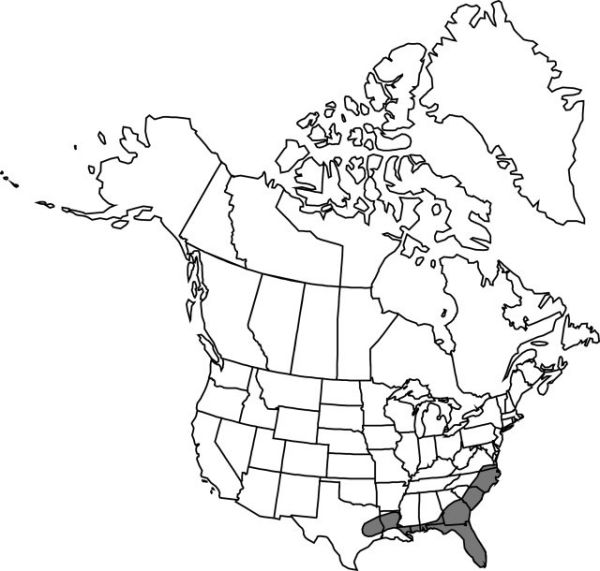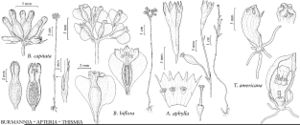Burmannia biflora
Sp. Pl. 1: 287. 1753.
Revision as of 03:13, 27 July 2019 by FNA>Volume Importer
Stems 3–18 cm. Leaves: basal leaves absent; cauline leaves subulate to lanceolate, 1–4 × 0.2–1 mm. Inflorescences loosely 2–12–flowered cymes, 2-cleft, or flowers solitary; cyme rachis usually distinct, to 2.5 cm; floral bracts subulate to lanceolate, 1.5–3.2 mm. Flowers 3-winged, 3–6 mm, wings blue, to 2.5 mm wide; perianth blue to violet, often with cream-colored lobes; perianth tube 6-lobed; outer lobes triangular, 0.5–1 mm; inner lobes erect, elliptic, 0.4–0.8 mm; pedicel 0–1 mm. Capsules 2–3.5 mm.
Phenology: Flowering summer–fall.
Habitat: Low woods, pond margins, savannas, bogs, swamps, ditches, pine barrens
Elevation: 0–100 m
Distribution

Ala., Fla., Ga., La., Miss., N.C., S.C., Tex., Va., West Indies (Cuba).
Discussion
Selected References
None.
Lower Taxa
None.
